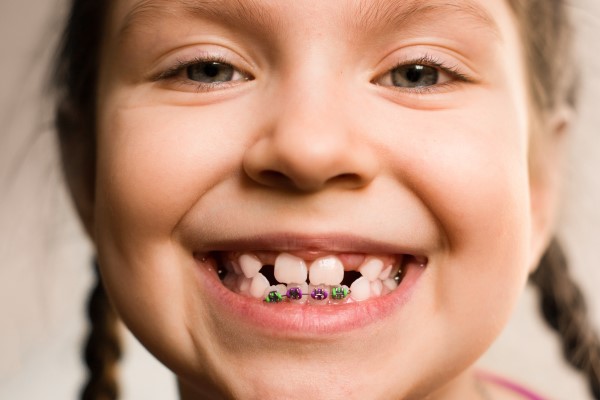Are Braces a Part of Phase 1 Orthodontics?

Early orthodontic therapy, otherwise called Phase 1 orthodontics, focuses on preventing more serious issues in the future. It is easier to correct certain orthodontic problems if the treatment occurs early. By correcting the jaws' structure during development, a dentist can manage the space available for permanent teeth and correct bite abnormalities. Your child's bite is set when they are seven years old, and the degree of crowding may be assessed. Continue reading to find out if the dentist will include braces in phase 1 orthodontics.
Overview of phase 1 orthodontics
Phase 1 orthodontics is a problem-solving procedure that focuses on one key issue in the oral cavity of a young child. This treatment usually lasts a year, but it can be as brief as six months or as long as eighteen months.
Treatment options for phase 1 orthodontics may include one orthodontic device like limited braces with a few baby teeth extraction. Metal, transparent, or gold braces can be used for early orthodontic therapy. A palatal expander, a thumb-sucking device, or orthodontic headgear are examples of appliances that may be recommended.
The dentist may decide to use only one of these orthodontic appliances as part of the child's phase 1 treatment. This is primarily determined by the dentist's goal for the child's treatment. Since Phase 1 orthodontics usually commences when a kid is in the mixed dentition stage, your dentist may choose to put braces on some of the baby teeth as well.
The need for phase 1 orthodontics
Early braces treatments are hands-on, aiming to address major issues before they escalate into larger issues later in life. There are several benefits to treating a kid with phase 1 orthodontics, including the ability to maximize the kid's active growing period. The dentist might take advantage of this stage of development to correct severe overbites and make room on the jaw for overcrowding.
Not all children are good candidates for phase one orthodontic therapy. Children with poor dental hygiene, tooth decay, or who refuse to follow diet restrictions while wearing braces are not good prospects. This increases the risk of the treatment causing more damage than good.
The dentist will discuss the child's eligibility for early orthodontic treatment. If the child is not yet ready, the dentist will continue to observe them to determine the optimum time to begin treatment.
The first step in determining if a child needs phase 1 orthodontics is to take them on a visit to the pediatric dentist. They will monitor the growth and development of the jaws and the eruption of the teeth at each check-up. If an issue arises, the pediatric dentist will check to see if the child needs orthodontic treatment.
In conclusion
Dental professionals recommend that a child's first orthodontic consultation happens no later than age seven. The dentist will not only monitor the child's teeth and gums to prevent decay and ensure good oral health, but they may also discover elusive skeletal developmental issues that may cause orthodontic problems. In that case, they may recommend phase 1 orthodontics, which may include the use of braces.
Request an appointment here: https://nettsmiles.com or call Nett Pediatric Dentistry & Orthodontics at (623) 759-7658 for an appointment in our Phoenix office.
Check out what others are saying about our dental services on Yelp: Orthodontics in Phoenix, AZ.
Recent Posts
Pediatric dentistry is a vital part of a child's healthcare team. They are responsible for the oral health of babies, children, and adolescents. A pediatric dentist has the education and experience to care for a child's unique dental needs. In addition, they can provide preventive care, diagnosis, and treatment of various dental problems.Parents need to…
Pediatric dentistry works with parents and children to keep gums and teeth healthy. Brushing daily may be an important part of oral care, but it is not enough. Flossing must be a habit in kids as well. If you want to know more about the importance of daily flossing, here are the details straight from…
When scheduling a child's first dental appointment, you should consider visiting the pediatric dentistry office. Dentists who specialize in pediatric dentistry acquire additional training beyond the universal requirements of dentistry school to meet the unique needs of their young patients. A parent's decision to establish with a particular provider may be influenced by their knowledge…
Your child's teeth will develop and change as they age. Likewise, the kind of dental care they need will change over time. The adult teeth may not develop properly without proper oral care, leading to gum disease and decay problems. Talking to a pediatric dentistry professional and asking the appropriate questions may help better care…


